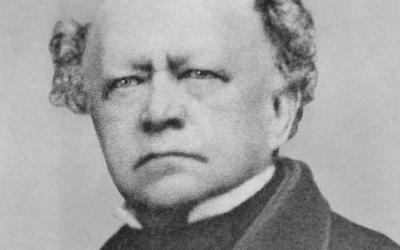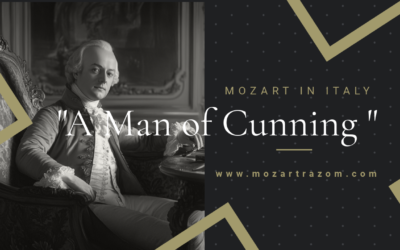The Myth of Mozart’s Education
Unveiling the Influence of Leopold Mozart
For centuries, Wolfgang Amadeus Mozart has been celebrated as a musical prodigy, effortlessly composing masterpieces from a young age. However, when we peel back the layers of myth surrounding his early education, a different picture emerges—one in which his father, Leopold Mozart, plays a far more controlling and influential role than is often acknowledged. This article explores the true nature of Mozart’s education, examining how much of his early works can be attributed to his own genius, and how much was the product of his father’s meticulous and often self-serving guidance. Was Wolfgang’s brilliance entirely his own, or was it a crafted image designed by Leopold?
Mozart: The Fall of the Gods
This book offers a fresh and critical look at the life of Wolfgang Amadeus Mozart, challenging the myths that have surrounded him for centuries. We strip away the romanticised image of the “natural genius” and delve into the contradictions within Mozart’s extensive biographies. Backed by nearly 2,000 meticulously sourced citations, this work invites readers to explore a deeper, more complex understanding of Mozart. Perfect for those who wish to question the traditional narrative, this biography is a must-read for serious music lovers and historians.
"It was not the first time that old Mozart cheated on his son’s age."
Mozart: The Fall of the Gods
The name Wolfgang Amadeus Mozart has long been synonymous with genius. Tales of his early childhood often paint a picture of a boy prodigy, sitting at the keyboard, composing minuets and symphonies with little effort. But what if the real story of Mozart’s education wasn’t quite so miraculous? What if the genius we associate with young Wolfgang was, in fact, heavily influenced, if not entirely constructed, by his father, Leopold Mozart?
Leopold was no stranger to ambition. He was a musician of modest success who, despite his best efforts, never managed to rise to the heights he had dreamed of. His career at the court of the Archbishop of Salzburg was filled with frustrations and limitations, constantly overshadowed by superior musicians. According to Niemetschek, it took young Wolfgang only “half an hour to learn a minuet or a short Lied.” Such feats were indeed impressive, but they were also the result of relentless pressure and guidance from his father.
Leopold meticulously planned his son’s education, but not with the goal of fostering a broad intellectual curiosity. Instead, his focus was singular: to turn Wolfgang into a musical sensation. It is this drive that shaped not only Wolfgang’s early compositions but also the carefully curated image of him as a child prodigy.
Leopold’s influence can be seen in many of Wolfgang’s early works. For example, much of the music in Nannerl’s notebook, long thought to be Wolfgang’s own compositions, was actually written or transcribed by Leopold. The “Minuet K.6 in C major,” once attributed to young Mozart, is in fact a piece arranged by Leopold from his own Serenade. This raises the question of how many of Wolfgang’s early works were truly his own and how many were crafted by his father’s hand.
Even more revealing is the pattern of how Leopold presented his son to the world. He carefully managed Wolfgang’s age, often falsely presenting him as younger to enhance the perception of his prodigiousness. This manipulation was a regular strategy employed by Leopold to enhance his son’s—and by extension, his own—reputation.
Leopold’s relentless control extended beyond music. His letters, which provide much of our insight into the family’s travels and experiences, show little interest in the broader world around them. He was focused on success, not education in the broader sense. While the English traveller Charles Burney wrote two detailed journals about his European tours, Leopold’s accounts are notably devoid of descriptions of the places, people, and cultures they encountered. For Leopold, everything revolved around Wolfgang’s performances and the praise they received.
Despite the grandeur often associated with Mozart’s name, the reality of his education tells a different story—one of painstaking manipulation and control. Even after Wolfgang’s death, the myth persisted, largely due to Leopold’s carefully constructed narrative. As historians have examined the records more closely, it’s become clear that many of the compositions attributed to young Wolfgang were, in fact, collaborative efforts between father and son, or even solely Leopold’s work, copied out in Wolfgang’s name.
This leads us to a critical question: if so much of young Mozart’s work was guided—or outright written—by his father, can we still consider Wolfgang the genius we’ve been taught to believe? Or should we instead reframe our understanding of his early years as the product of a family effort, where Leopold’s ambition and control played just as crucial a role as Wolfgang’s talent?
In conclusion, the myth of Mozart’s effortless genius doesn’t hold up under closer scrutiny. Leopold Mozart, a man driven by ambition, crafted a carefully controlled image of his son, manipulating not only Wolfgang’s compositions but also the public perception of his talents. While Wolfgang’s natural abilities were undeniable, his early successes were far more collaborative than history has led us to believe.
You May Also Like
Mozart’s Music or Marketing Strategy?
Despite Köchel’s best intentions, his catalogue of Mozart’s works became a commercial tool, filled with questionable pieces added by publishers keen on profit rather than accuracy.
A Revolutionary Encounter at Cremona Musica
Sharing insights on Mozart and the Neapolitan school at Cremona Musica, the premier global stage for music and culture.
#1 A Man of Cunning
In the end, Leopold Mozart’s life was a testament to survival in a world where his talents were often overshadowed by those of his more gifted contemporaries and his own son. While his “Violinschule” remains a notable contribution to music pedagogy, it is clear that Leopold’s legacy is as much about his ability to navigate the challenges of his time as it is about his musical achievements. His story is one of ambition, adaptation, and the lengths to which one man would go to secure his place in history, even if that place was built on borrowed foundations.
@MozartrazoM
Mozart’s Letters: A Legacy of Disappearances, Edits, and Forgeries
Mozart’s letters reveal missing originals, questionable authorship, and forgeries, adding complexity to his legacy.
The Curious Case of Mozart’s “Lullaby”
Though long credited to Mozart, the lullaby “Schlafe mein Prinzchen, schlaf ein” hides a murky history. Initially published by Nissen, Constanze’s second husband, it has endured as one of Mozart’s supposed works—despite a trail of doubts. In 1798, Constanze herself noted sending “another piece of Mozart’s in place of the lullaby,” raising questions about its origins. By the 20th century, researchers revealed it as the work of lesser-known composers, yet it remains deceptively tied to Mozart, its myth surviving through mere footnotes.
The Contradictions Behind Mozart’s Horn Concerto K.412
The authenticity of Mozart’s Horn Concerto K.412 remains hotly debated, as the work bears numerous contradictions in its manuscript history. The first movement may be original, but what about the rest? The inclusion of Franz Xaver Süssmayr and later editorial meddling raises serious questions about what we are really listening to when we hear this ‘Mozart’ concerto.







